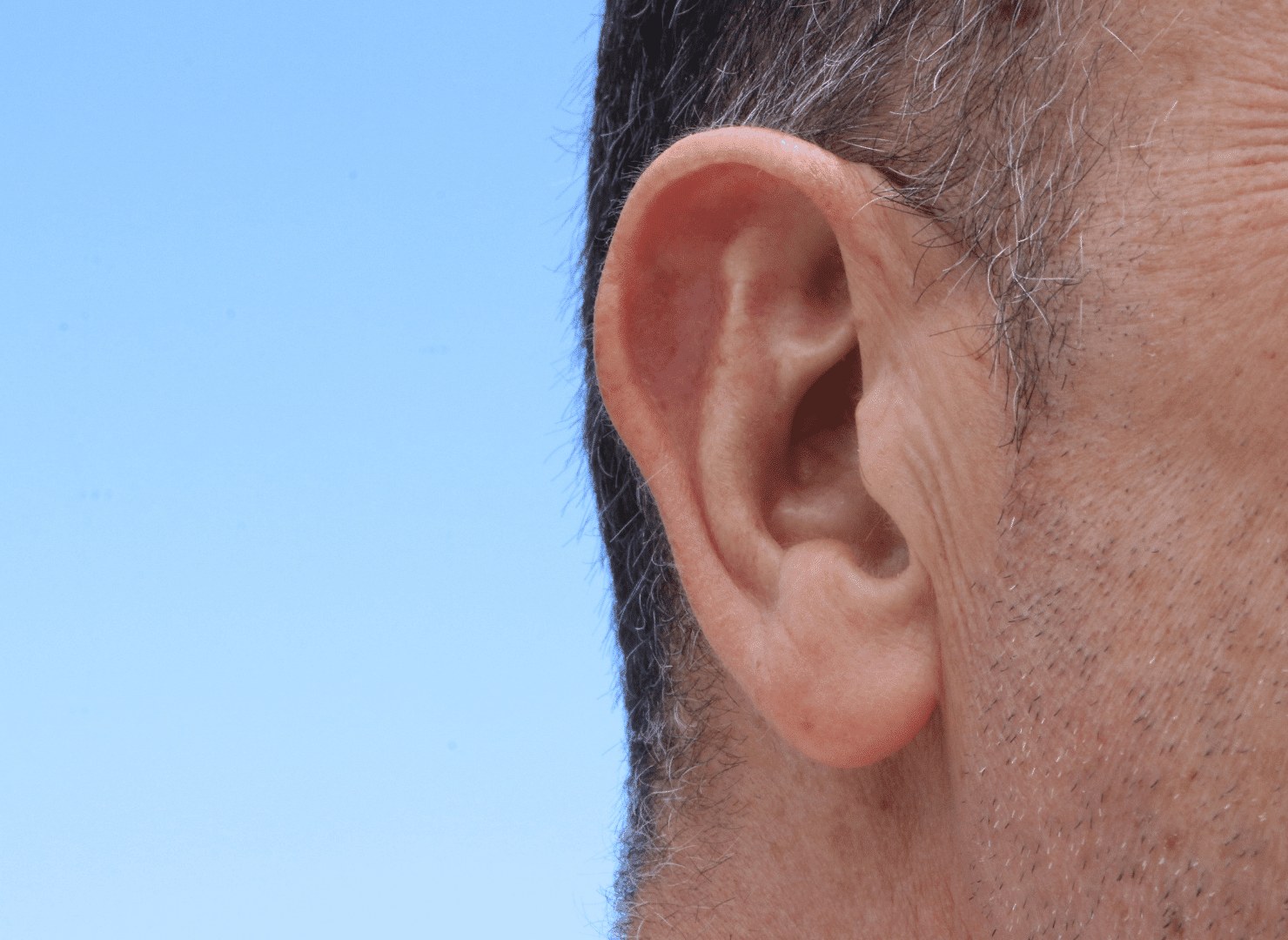Where To Buy Hearing Aids in 2022: A Definitive Guide
Once you and your doctor determine you need hearing aids and have an audiogram in hand, you have several options when you're ready to make the actual purchase. With so many opinions - local clinics, wholesale retailers, and a plethora of online resources - it can feel overwhelming if you don't know where to start. Fortunately, we've put together this how-to guide to make things as easy as possible.
1. Where You Can Buy Hearing Aids: Local Clinics
Audiologists may operate independently while others can be found through local clinics. With a simple search through your insurer, you can find the best doctor for you and set up an appointment. Another great way to find hearing clinics is to do a simple google search!  Make sure to type in your location, including your city and state, so that you populate results for hearing clinics near you. If you decide you want to drive to a store, finding one that's accessible and convenient is key.
Make sure to type in your location, including your city and state, so that you populate results for hearing clinics near you. If you decide you want to drive to a store, finding one that's accessible and convenient is key.
Since you'll build a consistent relationship with your audiologist, they are an excellent resource for purchasing hearing aids when the time is right. They can provide specialized care and take all the guesswork out of finding the best fit and model for you.
Getting Your Hearing Tested Before Buying
An audiologist is an expert in their field, which means they've gone through extensive training to be able to assess and treat hearing impairments. They can tap into their training when testing and configuring your hearing aid, helping you to find exactly what you're looking for, even when you're not so sure what that is.
There are certain situations where an audiologist can be particularly useful - if your ears have an unusual ear curvature or a less common canal shape, for example, an audiologist may test and fit you to a special and custom product designed to work best for your individual ear anatomy and physiology. Custom hearing aids are ideal for most because they can be programmed to your specific hearing abilities.

Fortunately, these types of hearing aids are available at all three of the options we compare in this article. You can find custom hearing aids online, in-store, and even at some wholesalers.
Understanding Hearing Aid Quality, Cost, and Technology
More advanced, high-tech custom models can come at a steeper cost, given the increased expense of producing a hearing aid tailored to your specific ear and increased quality. Going into a hearing clinic can be a good option for individuals who have previously tried out hearing aids, but were unable to find a model that worked for them. A trained professional can provide clinic input to help guide your buying decision. Regardless of your situation, an audiologist can be a great help to you when you're looking to purchase hearing aids and improve your hearing ability. Our head audiologist at Audicus, Marianne Cramer, M.S F-AAA, has helped so many patients figure out the right hearing device!
2. The Best Way to Buy Hearing Aids: Online
Before you shop, you'll want to have an idea of what you value as a shopper; do you want to go into a physical brick-and-mortar location, or do you prefer to buy hearing aids online from the comfort of your home? Online resources are able to bridge the gap between expensive, highly customizable hearing aids and low-cost generic pairs. This means you can find whatever you need at home, even if you don't have access to a hearing storefront. There's a lot of different types of hearing features and devices to choose from - Bluetooth, adjustable, rechargeable, and even low-tech hearing solutions, like amplifiers. The benefit of turning to online companies is that you as the consumer are able to complete research and look into different makes and models that are a good match for your unique situation.
Comparing Hearing Aid Types, Models, and Brands
If you're unsure where to start, a comparison chart is generally a great resource. Various third-party hearing companies complete tests and create comparison charts to help with the process. They look at the technology, dependability, and customer service of each of the popular hearing aid brands and provide customers with cheat sheets for purchasing hearing aids. Here at Audicus, we recommend using more than one comparison chart to help guide your purchase. For the best results, you'll want to do some research beyond third-party charts. This might mean reading about products online, looking at hearing aid reviews from actual customers, or tapping into your own network to ask around.
Researching The Best Hearing Aid Companies in 2021
Doing your research allows you to have the full picture of hearing aids you might consider buying, including any user feedback, which can inform your future purchase. It's important to look at both product performance and the credibility of the brand itself.
Popular and trusted online manufacturers include Starkey, ReSound, Widex, Sonic, Siemens, Sonic, and of course, Audicus. Most comparison charts and online hearing aid reviews will discuss at least some of these companies or their products.
Where to Buy Cheap, High-Quality Hearing Aids
As a general rule of thumb, companies that manufacture their own hearing aids tend to be a good option for individuals looking to find high-quality hearing aids at a palatable price point. This is because businesses tend to have more flexibility with pricing when they can cut out the middle man.  Cutting out the middle man helps drive down costs that would otherwise be passed onto the consumer. So, if you're looking for the best affordable hearing aid or just a cheaper hearing aid option, an online solution may be right for you.
Cutting out the middle man helps drive down costs that would otherwise be passed onto the consumer. So, if you're looking for the best affordable hearing aid or just a cheaper hearing aid option, an online solution may be right for you.
Customer Support and Purchasing Your Hearing Aids Online
Once your research is complete and you've decided on the pair that's best for you, you can finally make a purchase online. Companies like Audicus will give a timeframe for return and provide customer service to help you every step of the way - both over the phone and online.  That's one other thing to consider, and unfortunately, something too many prospective customers unwittingly overlook. No matter where you end up making your purchase, you'll want to consider the quality of customer support, in case you need help troubleshooting or programming your hearing aid.
That's one other thing to consider, and unfortunately, something too many prospective customers unwittingly overlook. No matter where you end up making your purchase, you'll want to consider the quality of customer support, in case you need help troubleshooting or programming your hearing aid.
3. Where to Get Hearing Aids: Wholesale Retailers
For cheaper alternatives, there are wholesale retailers that sell hearing aids. Places like Costco, Sam’s Club, and Walmart offer few options of hearing aids, but the lack of variety can lead customers to purchase a pair of hearing aids that are not the best for their needs. If you're searching for something you want to last for a long time, you understand how important it can be to get it right the first time around. Having a wider selection can make the process of shopping for a hearing aid much easier.
With wholesalers, customers usually cannot try on every pair to explore fit, so they may settle for the cheapest option. Since these types of stores sell thousands of products, hearing aids may not be a top priority, and customer service workers may not be able to answer specific questions.
Finding a Hearing Aid That's Right for You
This can, unfortunately, lead to a less-than-stellar in-store experience. If you have the option, we encourage everyone to talk to people who are specialists in the products and really understand hearing before making a purchase. If you've read this far, you've probably already gathered that it's important to consider your own priorities, like whether you value convenience, price, expertise, product options (or a mix of all four!), when deciding where to shop. Personal preferences and desired outcomes tend to play a big role in the way people buy hearing aids. The best place to shop for hearing aids can vary from person to person and ultimately depends on what each person values most.
Getting Help when Purchasing Hearing Aids
One benefit of wholesalers is that follow-up appointments tend to be part of the package deal. Many stores will offer free check-ups and hearing tests to ensure customers are happy with their products. This means that if your hearing aid isn't working quite as well as you had hoped, you can have a customer service worker help troubleshoot with you back at the store. As you may already be thinking, a customer service worker's assistance can be helpful, but it may not be as comprehensive as a clinically trained audiologist. Even the best customer service workers are unlikely to be able to offer the same level of guidance and insight as a seasoned hearing doctor.




